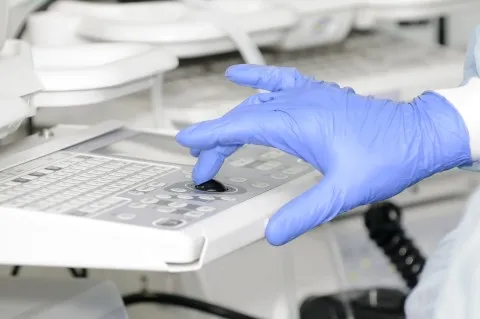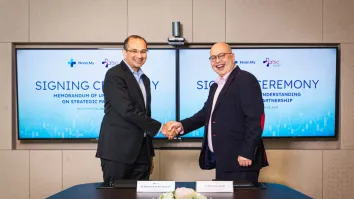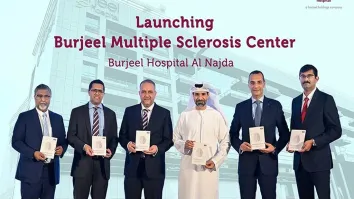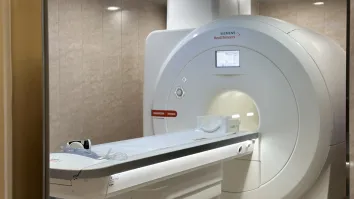
MSD and the journey to address cancer
MSD, also known as Merck in the US and Canada, is celebrating 125 sterling years of saving lives through breakthroughs, innovative drugs, and therapies.
As MSD, also known as Merck in the United States and Canada, celebrates its 125th anniversary this 2016, the pharmaceutical giant has made and is making great strides in the healthcare industry since it was founded in 1891. MSD is currently ranked fifth among the top pharmaceutical companies in Asia Pacific, according to IMS Health, with its operations headquartered in Singapore spanning twelve countries: Australia, Hong Kong and Macau, India, Indonesia, South Korea, Malaysia and Brunei, New Zealand, Philippines, Taiwan, Thailand, and Vietnam.
After merging with Schering-Plough in 2009, MSD’s manufacturing presence in Singapore doubled, with MSD’s presence in Singapore extending into research and development through the Translational Medicine Research Centre which supports MSD’s global research and development efforts via a range of pre-clinical and clinical development programs.
MSD’s 1,200 employees in the Asia Pacific headquarters of Singapore work in various fields including research and development, manufacturing, commercial operations, and global support functions to deliver medical therapies to patients in Asia Pacific and around the world.
Dedication to excellence
“Through our prescription medicines, vaccines, biologic therapies and animal health products, we work with customers and operate in more than 140 countries to deliver innovative health solutions. We also demonstrate our commitment to increasing access to healthcare through far reaching policies, programs and partnerships,” says Jannie Oosthuizen of MSD. Currently, MSD’s core businesses lie in oncology, vaccines, diabetes, and hospital and specialty care.
As a company dedicated to excellence in healthcare innovation, research and development as well as commercial innovation are two important aspects through which MSD seeks to address the unmet medical needs of today. In 2015, the company invested US$6.5 billion on research and development, with 19 compounds in the late stage development.
Recent developments
The company’s recent developments include their latest antibiotic for use in hospitals to treat adults with complicated intra-abdominal infections, as well as complicated urinary tract infections, and their newest drug for hepatitis C which received U.S. FDA approval.
MSD also developed and launched the world’s first diabetes DPP-IV inhibitor which won the prestigious Prix Galien Award for Best Pharmaceutical Agent of the Year in 2007, a particularly relevant drug in the Asia Pacific where diabetes is all too common.
“Our breakthrough anti-PD-1 immunotherapy drug for advanced melanoma has been approved in the U.S., Europe, and in Asia Pacific (Australia, New Zealand, Hong Kong & Macau, Korea, Taiwan and Singapore),” says Oosthuizen, adding that the drug received the Prix Galien U.S.A. Award for Best Biotechnology Product in October 2015 and the Breakthrough Therapy Designation from the U.S. Food Drug Administration in two tumor types: advanced melanoma and advanced non-small cell lung cancer (NSCLC).
“It combats cancer by harnessing the power of the body’s own immune system. It is a humanized monoclonal antibody that works by increasing the ability of the body’s immune system to help detect and fight tumor cells.” The drug has been approved now in the U.S. for NSCLC.
Easing the burden
Asia Pacific and Latin America cumulatively account for 64 per cent of the world’s population, about 4.6 billion people in total, and the burden of cancer in both regions results in about 4.6 million cancer-related deaths annually. MSD aims to revolutionize cancer treatment in Asia Pacific.
“Our goal is to translate breakthrough science into innovative oncology medicines to help people with cancer, worldwide. Helping patients fight cancer is our passion and supporting accessibility to our breakthrough medicine, such as anti-PD-1 immunotherapy, is our commitment. Our focus is on pursuing research in immunooncology, and we are accelerating every
step in the journey – from lab to clinic –to potentially bring new hope to people with cancer,” says Oosthuizen.
A leading healthcare provider
Clinical trials are currently ongoing in over 10 countries for more than 30 tumor types including lung, breast, and gastric, to name a few of the more common cancers afflicting people in the Asia Pacific region.
“We’re exploring different tumor characteristics (such as PD-L1 expression) as biomarker predictors of patient responsiveness. Such predictors are important to the success of targeted oncology therapy, which can be customized for patients who present themselves as more responsive to certain treatment approaches. In other words: how to identify the right medicine for the right patient,” says Oosthuizen.
As a leading healthcare provider, MSD is fully committed to engagement with the medical and scientific communities. This includes launching a series of symposiums called “Current Trends in Immuno-Oncology” as part of their efforts in the area of scientific education, to update scientific leaders on the latest developments in oncology in countries such as Australia, Korea, Taiwan and Hong Kong.
Strategic collaborations
MSD has also collaborated with several partners in the healthcare industry. With GlaxoSmithKline (GSK) MSD has initiated Phase 1 clinical trials to evaluate GSK’s investigational immunotherapy as monotherapy, as well as in combination with anti- PD-1 therapy in patients with locally advanced, recurrent or metastatic solid tumor(s) that have progressed after standard treatment.
A collaboration with Amgen haslaunched tests to evaluate the efficacy and safety of Amgen’s investigational oncolytic immunotherapy in combination with MSD’s anti-PD-1 therapy in a Phase 1, open-label trial of patients with recurrent or metastatic squamous cell carcinoma of the head and neck (SCCHN).
“In line with our mission of helping save lives, we plan to work closely with the medical fraternity to identify patients early through screening programs as well as general practitioner education. Early detection and diagnosis are key to increased survival rates,” says Oosthuizen. “Our mission is to help save as many cancer patients’ lives as we can – and we are best positioned to do this through innovation and increasing patient access. Together with scientists and physicians around the world, we endeavor to improve the lives of patients suffering from these illnesses.”
Disclaimer: This is a MSD-sponsored article. Registration status and availability of products mentioned in the article may differ among countries.



















 Advertise
Advertise






